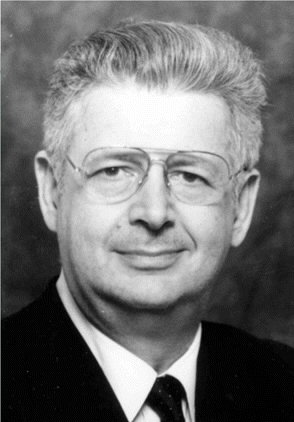As the personal physician to FDR, Ross T. McIntire, MD, an otolaryngologist, treated FDR’s upper respiratory problems with nasal and laryngeal sprays. However, the exact nature of the treatments Dr. McIntire used to treat FDR were not known and raised some concern.
Explore This Issue
December 2008Further concern over the manner in which Dr. McIntire treated FDR came toward the end of FDR’s presidency-and life-when FDR was admitted to Bethesda Naval Hospital in March 1944 and diagnosed with hypertensive heart disease. Although Dr. McIntire convened a panel of military and civilian experts to weigh in on the best care for FDR, his decision not to share FDR’s cardiac problems with FDR’s family or with the media was highly criticized after Roosevelt’s death.
 With a candidate, the public has a right to be informed about whether the person has a medical condition that might cause death or incapacity before the end of the term.
With a candidate, the public has a right to be informed about whether the person has a medical condition that might cause death or incapacity before the end of the term.-Robert J. Ruben, MD
According to Dr. Ruben, this decision was based on Dr. McIntire’s adherence to the traditional medical ethic regarding physician-patient confidentiality. The decision not to give out the information appears to be Roosevelt’s, and is consistent with FDR’s long-standing determination to appear strong in health, all the more important in the middle of World War II. Furthermore, Dr. McIntire, as a naval officer, was subordinate to his superior, the Commander in Chief.
For Dr. Ruben, seen in the context of the period, and of his relationship with his patient, Dr. McIntire made the right decision. I’m going against the stream of history of what I’ve read, but many commentaries have not, in my view, taken full account of the time and the men, he said.
If FDR had not been the sitting president but a candidate running for office with a condition that turned out to be fatal (FDR died of a cerebrovascular accident in April 1944), would that alter how we view the right of the public to be informed as well as the responsibility of a leader or candidate to inform?
For Dr. Ruben, the role of confidant remains primary for the physician. He does believe, however, that there is a critical difference in what the electorate has the right to know regarding a candidate in contrast to a sitting president.
With a candidate, the public has a right to be informed about whether the person has a medical condition that might cause death or incapacity before the end of the term, he said. Yes, the electorate has a right to this knowledge-to know what might happen. However it is incumbent upon the candidate, not his physician(s), to provide full disclosure.
Grover Cleveland
Further away from our times, but president during another national crisis-the late 19th century’s financial crisis-President Cleveland is another leader who, when confronted with a potentially serious illness, kept it in private from the populace.
 [Reagan] was not concerned about people’s reactions. Once the press saw it [his hearing aid] two weeks later, hearing aid sales zoomed. This was a great positive benefit.
[Reagan] was not concerned about people’s reactions. Once the press saw it [his hearing aid] two weeks later, hearing aid sales zoomed. This was a great positive benefit.-John W. House, MD
What historians seem to be saying about him [Cleveland], said Lanny Close, MD, an otolaryngologist at Columbia University, is that his secrecy was related to the silver and gold crisis of the time. His leadership as president and his address to Congress in August of that year [1893] was critical for solving the financial crises.
Leave a Reply